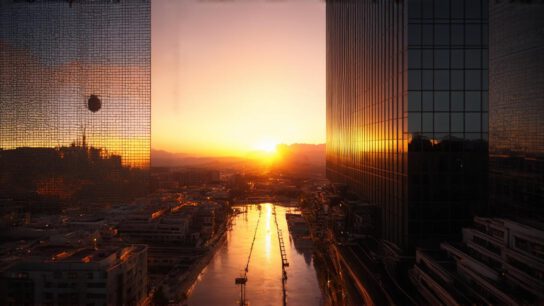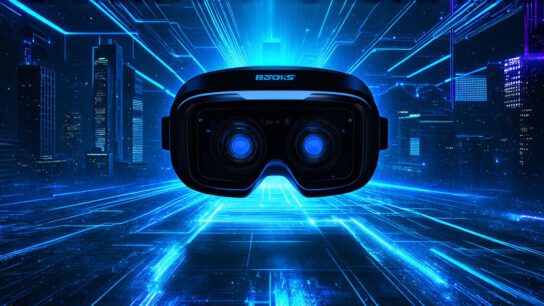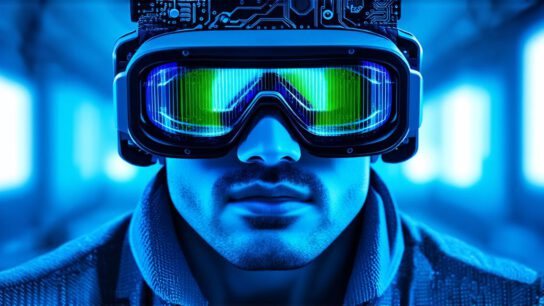Virtual reality (VR) is a rapidly growing field with countless job opportunities for developers, engineers, and designers. With VR technology becoming more accessible, there has never been a better time to explore the roles and responsibilities of VR jobs.
In this article, we will delve into some of the most common VR jobs and the skills and qualifications required to succeed in them.
The Most Common VR Jobs
1. Virtual Reality Developer
Virtual reality developers are responsible for creating and designing immersive virtual environments and experiences. They use programming languages such as C++ and Unity to create VR games, applications, and simulations. To be a successful VR developer, you will need strong skills in 3D modeling, game design, and coding.
2. Virtual Reality Engineer
Virtual reality engineers are responsible for the technical aspects of VR development. They work on optimizing VR experiences for different platforms, such as Oculus or HTC Vive. They also ensure that the hardware and software components of a VR system work together seamlessly. To be a successful VR engineer, you will need strong skills in computer science, physics, and programming.
3. Virtual Reality Designer
Virtual reality designers are responsible for creating the visual and interactive elements of VR experiences. They use software such as Maya or 3DS Max to create 3D models and textures, and they work with developers and engineers to ensure that their designs are both functional and engaging. To be a successful VR designer, you will need strong skills in art and design, as well as proficiency in 3D modeling and animation software.
4. Virtual Reality Content Creator
Virtual reality content creators are responsible for creating high-quality content for VR platforms, such as videos, games, and educational experiences. They work closely with developers and designers to ensure that their content is both engaging and effective in achieving its intended goal. To be a successful VR content creator, you will need strong skills in filmmaking, storytelling, and game design.
5. Virtual Reality Producer
Virtual reality producers are responsible for overseeing the development of VR projects from start to finish. They work closely with developers, designers, and content creators to ensure that their projects are completed on time, within budget, and to the highest quality. To be a successful VR producer, you will need strong leadership skills, as well as experience in project management and production.
Skills and Qualifications Required for VR Jobs
1. Programming Skills
Programming skills are essential for all VR jobs, from development to engineering to design. Developers and engineers need to be proficient in programming languages such as C++ and Unity, while designers and content creators may use software such as Maya or 3DS Max.
2. 3D Modeling Skills
3D modeling skills are essential for virtual reality designers and content creators. They need to be proficient in creating 3D models and textures using software such as Maya or 3DS Max.
3. Game Design Skills
Game design skills are essential for virtual reality game developers and content creators. They need to have a strong understanding of game mechanics, level design, and user interface design.
4. Artistic Abilities
Artistic abilities are essential for virtual reality designers and content creators. They need to have a strong sense of color, composition, and visual communication to create engaging and immersive experiences.
5. Leadership Skills
Leadership skills are essential for virtual reality producers. They need to be able to manage teams effectively, communicate clearly with stakeholders, and make strategic decisions that ensure the success of their projects.
Case Studies in VR Jobs
1. Virtual Reality Game Development
Virtual reality game development is a growing field with countless job opportunities for developers, designers, and artists. One example of a successful VR game development project is "Beat Saber" by Beat Games. The game has been widely praised for its immersive gameplay and engaging visuals.
2. Virtual Reality Education
Virtual reality education is another area where VR jobs are in high demand. One example of a successful VR education project is "Tilt Brush" by Google. The software allows users to create 3D models and art in virtual space, making it an ideal tool for teaching art, design, and engineering.
3. Virtual Reality Medical Training
Virtual reality medical training is an area where VR jobs are particularly important. One example of a successful VR medical training project is "Surgical Realities" by MedRealities. The software allows surgeons to practice procedures in virtual space, reducing the risk of errors and improving patient outcomes.
Expert Opinions on VR Jobs
“Virtual reality jobs are some of the most exciting and challenging roles in tech today,” says Nick Woodman, CEO of Oculus. “As the field continues to grow, there will be countless opportunities for developers, designers, and engineers to make a real impact.”
“Virtual reality is not just a game; it’s a new way of learning, working, and interacting with the world,” says Vivek Sharma, CEO of HTC Vive. “The potential applications of VR are virtually limitless, from education to healthcare to entertainment.”
Comparisons and Figurative Language
Virtual reality jobs can be compared to traditional tech jobs in that they require a combination of technical skills and creativity. However, VR jobs also require a deep understanding of immersive spaces and the ability to design experiences that engage users in new and innovative ways.
The Future of VR Jobs
The future of VR jobs is bright, with continued growth in the field expected in the coming years. As VR technology becomes more accessible



